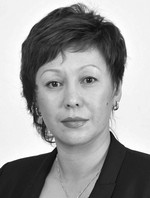Modern physical fitness self-control technologies applicable in physical education and sports process
Фотографии:
ˑ:
Fizicheskaya kultura: vospitanie, obrazovanie, trenirovka №3-2017, pp.64-67
PhD, Associate Professor S.S. Gulyaeva1
PhD, Associate Professor P.D. Gulyaev1
1Churapcha State Institute of Physical Culture and Sports, Churapcha, Republic of Sakha (Yakutia)
The study considers a practical experience of the modern physical fitness self-control technologies being applied in physical education, sport and health improvement processes. A high priority is given to an electronic self-control tools using semi-automated physical condition test data reading and processing equipment supported by modern freely accessible information processing technologies. Any athlete engaged in regular self-reliant physical training and sporting practices is exposed to the overloading risks in the process, and the risks need to be addressed by prudently designed individual training schedules duly supported by the relevant self-control and physicality testing systems. Qualitative physical progress rating tests provide valuable data on the health and body functionality variations in the process and make it possible to take timely and necessary disease preventive and health improvement actions. Modern portable physical condition testing systems prudently applied in the training process make it possible to obtain reliable and highly valuable data to profile the body functionality and physical progress of the trainees. The physical progress rating data and analyses provide the means to reasonably design, control, manage and analyse the training process quality, scope and intensity.
Keywords: physical education and sporting activity, technology, self-control, physical fitness, information technology, software tools.
References
- Voronov I.A. Informatsionnye tekhnologii v fizicheskoy kulture i sporte. Ucheb.-metod. posobie. [Information technologies in physical culture and sports. Study guide]. Lesgaft SPSUPC, St. Petersburg: [s.n.], 2005, 79 p.
- Grachev O.K., Kharlamov E.V. Fizicheskaya kultura. Ucheb. posobie [Physical Education. Study guide]. Moscow: MarT publ.; Rostov-on-Don: MarT publ., 2005, pp. 97-98.
- Dyachkovskaya V.P. Samokontrol i otsenka fizicheskogo razvitiya [Self-monitoring and assessment of physical development]. Tr. vseros. nauch. konf. "Sovremennye problemy fizicheskoy kultury i sporta" [Proc. All-Rus. sci. conf. "Modern problems of physical culture and sports"]. Khabarovsk, 2012, p. 80.
- Lysikov V.I. Diagnostika i samokontrol pri zanyatiyakh fizicheskoy kulturoy i sportom [Diagnostics and self-control at physical education and sports classes]. Tr. Vseros. nauch. konf. "Fizicheskaya kultura i sport v sovremennom obshchestve" [Proc. All-Rus. sci. conf. "Physical culture and sport in modern society"], Khabarovsk, 2013, p. 211.
- Tarasov P.V. Osobennosti soderzhaniya informatsionnykh tekhnologiy v oblasti fizicheskoy kultury i sporta [Features of content of information technologies in physical culture and sports sector]. Available at: https://superinf.ru/view_helpstud.php?id=2784. (Accessed: 02.03.2017).



 Журнал "THEORY AND PRACTICE
Журнал "THEORY AND PRACTICE